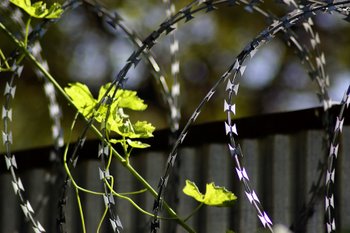Security in Afghanistan
Important Do's and Dont's

Here are some basic tips about dealing with security in Afghanistan. This does not pretend to take the place of a full security orientation, which is recommended if you are coming to live and work in Afghanistan. Disclaimer: These recommendations are not intended to eliminate all risks associated with experiencing Afghanistan, but reflect a pragmatic approach toward cautious interaction with the culture and environment. Remember, security in Afghanistan is not a feeling. - DON’T spend extended periods of time in places where foreigners frequently congregate.
- DON’T disregard the counsel of local shopkeepers. They usually genuinely care about your safety and…
- DO utilize the hospitality of a store owner by entering his store when you feel you are receiving any harassment on the street.
- DO follow the buddy system when traveling.
- DO hire Afghan guards (Chaukidars) to watch your residence. Use them as sources of security information. If possible, send your Chaokidar to the bazaar for information.
Give them a radio so they can easily listen to the news if security in Afghanistan is deteriorating. - DO have a mobile phone (functioning and charged) at all times.
- DON’T leave vehicles unattended.
- DO make an effort to obtain a security briefing prior to embarking on any out-of-city travel.
- DON’T use unknown taxis
- DON’T disobey checkpoints and stop whenever an authorized person directs you to, but…
- DO use caution, because sometimes armed opposition groups have impersonated Afghan authorities
- DO develop relationships with taxi drivers that you can call upon for your travel needs.
- DO keep children in the close vicinity of a responsible adult at all times when traveling outside your compound.
- DO try to be inside a secure compound between 22:00 and 05:00.
- DO try to obtain access to a satellite phone. Sat phones are available for purchase inside Afghanistan.(In times of widespread insecurity in Afghanistan, cell phone coverage will greatly deteriorate)
- DO keep a 2 week stock of food and water on hand.
- DO ensure you have a thought out emergency contingency plan.
- DO have an absolute minimum $200 reserve cash, and a valid credit card
- DO try to use vehicles whenever possible rather than walking or bicycling especially in Kabul. This may be different in some remote places.
- DO make an effort to have your times/routes randomized as much as possible.
- DO take care so that clothing “blends in” as much as possible and behavior does not attract attention.
- DO Keep doors locked while driving and seat belts fastened. Note that opening windows increases risk.
- DO move away from the area immediately if an explosion occurs nearby.
- DO be aware of mines and use only clearly marked paths. Also be aware of mines around freshly dug areas.
- DON’T accept parcels from strangers.
- DO exercise extra vigilance near:
o military convoys and military installations o gatherings of foreigners or places where foreigners habitually gather o busy major city roads and intersections or roads running through the town
Remember, security is NOT a feeling. Why do we say this? There have been times when we felt really safe, but we discovered we were in grave danger. Other times when we were very scared about going out, we were actually quite safe. How do you know when you are safe or not? Do not get lax in Afghanistan - always be on guard. As you gain experience living here, have developed relationships with Afghans, you will gain some experience, but you should never fully relax. Never fully trust anyone. Use common sense, and when in doubt, choose the conservative route in regards to your security.
Back to learn more about Living in Afghanistan
Return from Security in Afghanistan to Home
|